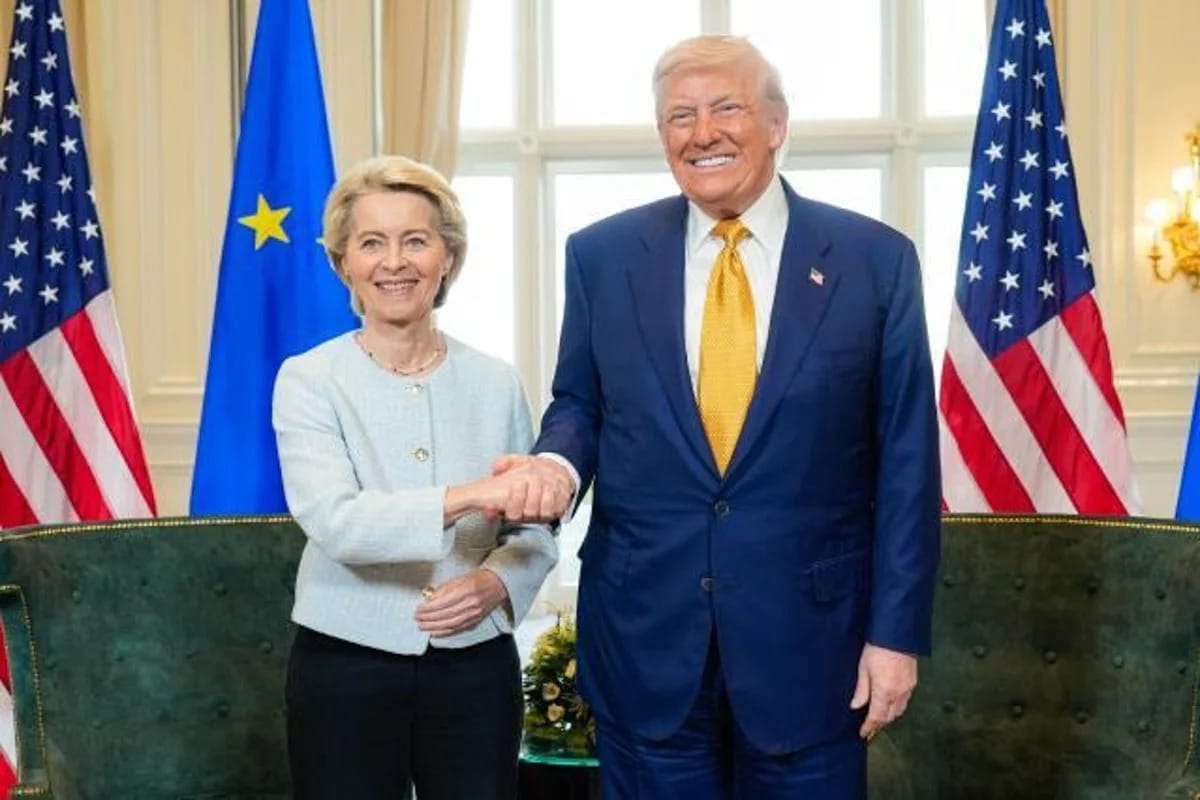According to European Commission President Ursula von der Leyen, the 15 per cent rate also applies to vehicles. Since April, cars imported from the EU into the US have been subject to a flat 25 per cent surcharge – regardless of drivetrain. These auto tariffs have already left their mark on Volkswagen Group’s half-year figures. While the carmaker does produce certain models locally in the US, a significant share of vehicles from across the Group’s brands is shipped from Europe – and therefore remains affected by the new tariff, despite its reduction.
“Today’s deal creates certainty in uncertain times. It delivers stability and predictability for citizens and businesses on both sides of the Atlantic,” said von der Leyen in a Commission statement. “This is a deal between the two largest economies in the world. We trade USD 1.7 trillion per year. Together, we are a market of 800 million people. And we are nearly 44% of global GDP.”
While the deal includes exemptions for certain sectors – such as aerospace and “critical raw materials” – cars and semiconductors fall under the scope of the 15 per cent base tariff. The German automotive industry, specifically the Federation of German Industries (BDI), criticised the agreement as an “insufficient compromise”, warning of a “damaging signal for the deeply integrated economies on both sides of the Atlantic.” The German lobby group VDA had not yet issued a response at the time of writing.
The (now slightly lower) tariffs are not the only challenge facing German OEMs when it comes to selling EVs in the US. The expiring federal tax credit in the US is likely to push record sales in Q3 – but beyond that, market prospects remain unclear. Various public charging infrastructure incentives are also on the line or have already been scrapped.
Incidentally, US President Trump stated that the agreement includes a US commitment to purchase $750 billion worth of American energy and invest an additional $600 billion into the country. However, according to von der Leyen, this does not concern renewable energy. “ Purchases of US energy products will diversify our sources of supply and contribute to Europe’s energy security”, she said. “We will replace Russian gas and oil with significant purchases of US LNG, oil and nuclear fuels.”
ec.europa.eu, spiegel.de (reactions; in German)
